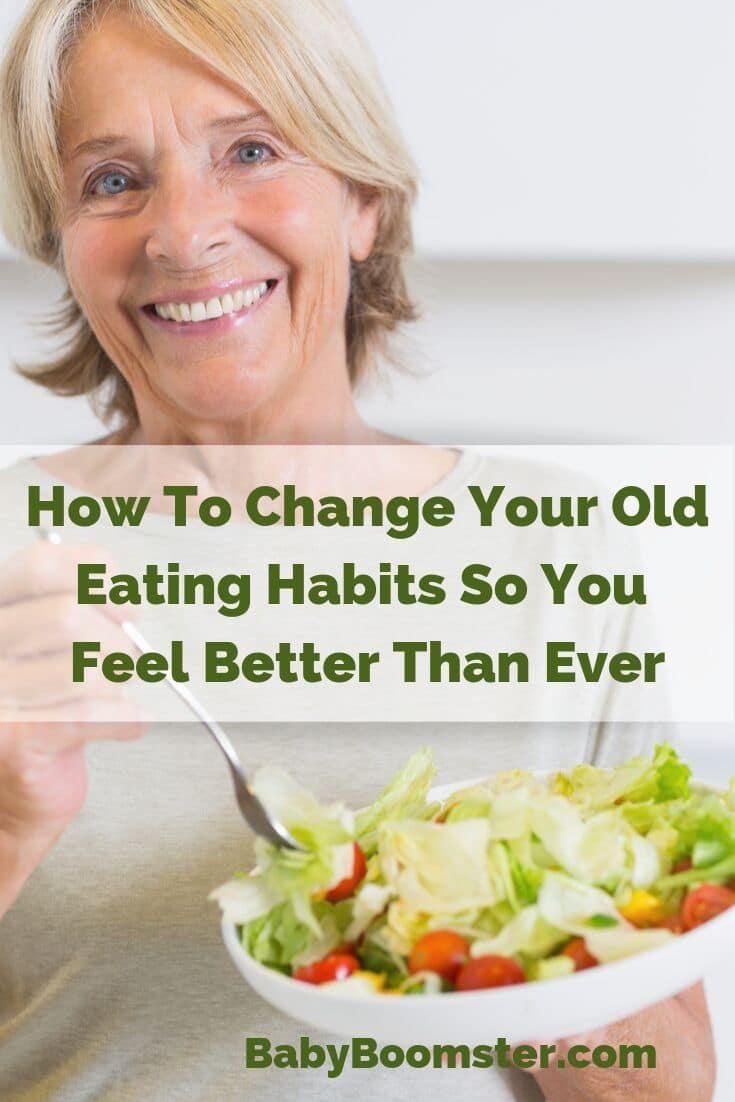Chances are you’ve developed some of your eating habits over the course of many years, and you might make many of your dining choices without really thinking about how the food will affect your health. Eating is often seen as a social activity, and holidays center around long-established special meals and celebrations. Many of your old habits may have worked just fine for you for years, but once you’re over 50, your body changes and your metabolism slows down.
Your nutritional needs change when you’re older. You probably don’t need as many calories as you did when you were younger but may need more nutrients to keep your body in optimal health. Your appetite may also decrease as you age which could lead to unintentional weight loss. To meet your individual needs, you may need to adjust what you eat, and possibly add supplements to your diet if you are deficient in nutrients.
Understand the Benefits of Changing Your Eating Habits
When you understand the many benefits that changing your eating habits can provide, they can serve as motivation to make these changes. Studies have shown that adopting a low-carb diet can help adults with mild cognitive impairment to slow or even reduce their symptoms. Further studies reveal a connection between low-carb diets as a way to prevent Alzheimer’s and cognitive decline. Once you find a diet that meets your individual needs it could increase your energy, improve digestion, and help you sleep better.
Improving your diet can even help you avoid the side effects of medications. For instance, medications for constipation can cause side effects like headaches, diarrhea, gas and bloating, nausea, and more. If you add more fiber to your diet it may make it unnecessary to take a medication that could cause side effects.
Start with Small, Gradual Changes
Try to be patient with yourself and your goals. Making big, dramatic dietary changes is difficult and can set you up to fail. Rather than adopting a strict diet that eliminates many of your favorite foods, look for a plan, that allows you to still indulge in some of your favorite foods. Eating in moderation and limiting some high-calorie foods is a more manageable and practical long-term option than a diet that completely transforms your eating habits.
Be aware of your personal habits that may sabotage your success. If you tend to overeat when you’re stressed or feeling emotional, knowing about these habits can help you to avoid slip-ups and take steps to keep yourself successful. Know that you’re an emotional eater? Stock your kitchen with snacks that are a much healthier option than indulging in chips or candy.
Assess your diet and go-to foods for hidden problems, like foods that contain too much sugar or non-nutritious foods that are full of empty calories. For instance, some cooking oils are much healthier than others. Opt for extra virgin olive oil, butter, and coconut oil, and try to avoid soybean oil, canola oil, and corn oil, which can contain GMOs.
Having moral support from friends and family can help to change your eating habits. Ask a partner to enjoy healthier foods with you, and when you go out to eat, ask your friends to choose restaurants that offer good low-calorie dishes to choose from. Having a friend or partner who’s willing to change their eating habits with you can help you to feel supported, and you can share healthy cooking tips with each other.
Stick With It
Forming new habits takes longer than you might think, so changing your eating habits won’t be an overnight fix. According to the results of a study performed by Phillippa Lally at the University College London, it takes 66 days before a new behavior becomes automatic. The new habit being formed as well as the person and environment all affect just how long it takes before a habit becomes habitual; while 66 days was the average required length of time, some study participants formed new habits in as little as 18 days, while others required 254 days to make it stick.
This study also found that even when participants missed a chance to follow through on their new behavior, they were still able to form new habits. This means that you need to view changing your eating habits as a long-term goal and be forgiving of yourself if you mess up and eat something you shouldn’t on occasion. It’s all part of the process of changing these habits. With time and perseverance, you’ll find that these changes to your eating will start to feel natural, and with perks like increased energy, weight loss, and even relieving health issues like constipation, you’ll feel better than ever.
Have you been changing your eating habits to adjust to changes in your body? Please leave a comment below.




Leave a comment and tell us what you think